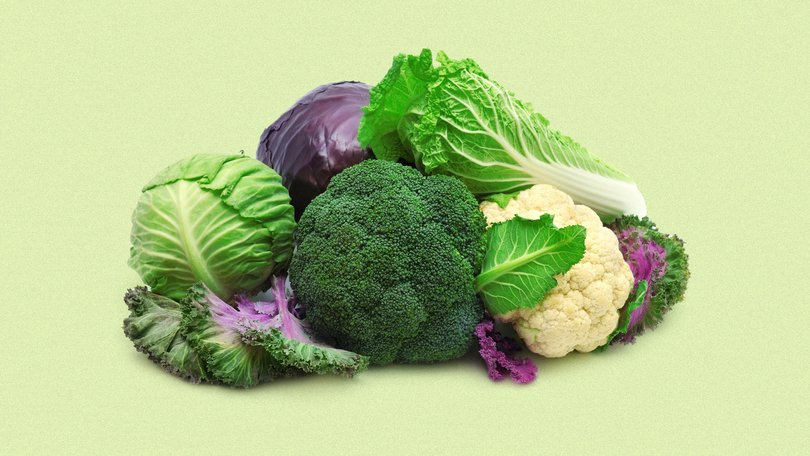Sarah Di Lorenzo: 10 foods to reduce liver fat, fight inflammation and support detoxification
Our liver is one of the most crucial organs in our bodies. These 10 foods will help reduce liver fat, fight inflammation, protect the liver from damage and support detoxification.

One third of Australian adults have fatty liver.
Fatty liver is exactly as it sounds like, a condition where fat builds up in the liver exceeding what is considered normal - more than 10 per cent of the liver’s weight.
There are several types of fatty liver, including alcoholic liver disease and metabolic-dysfunction associated steatotic liver disease (MASLD) caused by poor diet, lifestyle choices and diseases including overweight, type 2 diabetes, metabolic syndrome, under active thyroid and PCOS.
Sign up to The Nightly's newsletters.
Get the first look at the digital newspaper, curated daily stories and breaking headlines delivered to your inbox.
By continuing you agree to our Terms and Privacy Policy.In the early stages there are no symptoms, however, as the disease progresses you see jaundice, fatigue and abdominal pain. When it is advanced the liver becomes inflamed, can scar and lead to cirrhosis - which is advanced scarring.
The liver is an incredible organ that can regenerate but there is a limit.
The health of our liver is vital for our overall good health.
Our liver detoxifies, stores nutrients, filters blood, produces bile, metabolism of macronutrients, aids digestion, regulates hormones, regulates blood pressure, makes cholesterol, keeps red blood cells healthy and produces ketones. Taking care of our liver health supports all these functions.
A healthy diet and being well hydrated is so important for liver health. Some of the top foods include green vegetables as they can help to detoxify the liver, are high in fibre supporting digestion and can help to stimulate bile production.
The cruciferous vegetables that include cabbage, broccoli, cauliflower and Brussels sprouts, support the increased enzymes in the liver enabling detoxification and protect the liver from damage.
Enjoying fatty fish two to three times a week is excellent as they are rich in omega-3 fatty acids that can reduce inflammation and fat build up in the liver. You don’t need to be buying wild salmon, you can get omega 3 from much more affordable fish like sardines and mackerel.
Make sure you are always stocked up with garlic and add it to meals where possible. Garlic contains allicin that is not only an antioxidant but also helps detoxification and can help produce the antioxidant glutathione.
Adding turmeric to your cooking is excellent for liver health. Turmeric is an antioxidant as well an anti-inflammatory. Plus the curcumin in turmeric can improve fat metabolism and support liver tissue regenerating. Just note that curcumin needs black pepper to enhance absorption.
All you coffee lovers out there can rejoice. Coffee has been shown to reduce the risk of cirrhosis and liver cancer, plus it also helps to lower inflammation and support liver enzymes. Just be aware of what you are adding to the coffee - black or with milk and no sweeteners is best.
Another warm beverage that is excellent is green tea, which is rich in an antioxidant called catechins. This can help reduce fat in the liver and improve liver function
Avocados are a great source of healthy fats as well glutathione that supports liver detoxification. Plus they are anti inflammatory so can help protect the liver. They are so easy to add to recipes and as an added bonus they’re delicious!
Beetroot are rich in antioxidants and nutrients like betalains, can support detoxification and reduce inflammation. Chop it up and add to salads or roast it with dinner.
As for berries, I recommend ½ cup daily if you can. They are loaded with antioxidants and polyphenols which can protect the liver from oxidative stress and reduce inflammation.
Snacking on nuts daily,especially walnuts, will reduce inflammation. Plus there is research showing even improvement in liver enzymes with people with Metabolic-disfunction associated steatotic liver disease.
Putting these foods at the top of your shopping list can help reduce liver fat, fight inflammation, protect the liver from damage and support detoxification. This along with significantly lowering alcohol intake (ideally avoiding it) plus managing stress and exercise is the key to loving your liver.

